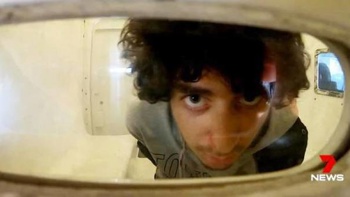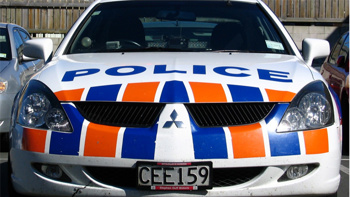
A bill has been introduced to Parliament today that will increase penalties for makers and suppliers of synthetic drugs while giving police more discretion to deal with users.
Police Minister Stuart Nash and Health Minister David Clark announced last year that the Misuse of Drugs Amendment Bill would target suppliers but allow police to use their discretion to prosecute users or direct them to health services.
The Bill also makes the two main synthetics, 5F-ADB and AMB-Fubinaca, Class A drugs.
"Our current approach has failed. We need to treat drug use as a health issue and that's exactly what this Bill does," Clark said in a statement.
"We also want people caught up in the web of addiction to get the support they need to get off drugs. We don't want to ruin lives by putting people in jail at a cost to taxpayers of $110,000 a year when we can help them to get the treatment they need."
Nash said the law change reaffirmed the approach currently used by police to exercise discretion about whether to prosecute.
"Every day, frontline police make decisions about whether to prosecute in areas like road policing, shoplifting and possession of drugs for personal use. Police support these changes to the Misuse of Drugs Act, which affirm a practice already in place.
Nash said an organised crime operation this year had resulted in 32 referrals to addiction services in the greater Auckland area, and a programme in Northland had resulted in police referring 257 people to addiction treatment.
"Police are now developing comprehensive training for officers to enable them to successfully implement the changes and are drawing up guidance for health-based referrals," Nash said in a statement.
"A health-based approach recognises we cannot arrest our way out of our drug abuse problems. Many of those with addictions or dependence issues need treatment or education about harm reduction.
As well as the reclassification of AMB Fubinaca and 5F-ABD as Class A, a new classification, Class C1, will be created to give police greater search and seizure powers for other new and emerging drugs.
It is essentially a holding classification before those drugs are then made Class A.
Conviction under the Misuse of Drugs Act for making, importing or supplying Class A drugs attracts a maximum penalty of life in prison.
The introduction of the Bill today follows the Coroner revising up the number of deaths attributed to synthetics.
In November it was 45-50 since June 2017 but has jumped to 60-65 with potentially more.
A spokesperson for Coronial Services said there were seven confirmed deaths from synthetic cannabis toxicity and around 55 cases that appeared to be linked.
"There are also a number of deaths where, while synthetic cannabis contributed to the death, synthetic cannabis toxicity was not the ultimate cause of death," the spokesperson said.
When Clark and Nash announced the detail of the Bill in December, $16.6 million was also announced to boost community addiction treatment services, including $8m over two years to develop a multi-agency drug early warning system.
But Drug Foundation executive director Ross Bell said little action had materialised so far.
"The lack of action and urgency from government departments continues to frustrate.
These systems have existed in Europe for 20 years. This is not rocket science," Bell told the Herald last week.
The system has been proposed to work in the same way as Operation Bates, a multi-agency operation that swung into action in Porirua and the Greater Wellington area in late 2016 and early 2017 when there was a spike in callouts to emergency services for people who had consumed synthetics.
Bell said if a drug early warning system had been up and running when it was meant to have been, "the synthetics crisis that we experienced when those first drugs had been identified at the border, even before they made their way on to the street, we would have been in a position to act".
Take your Radio, Podcasts and Music with you









